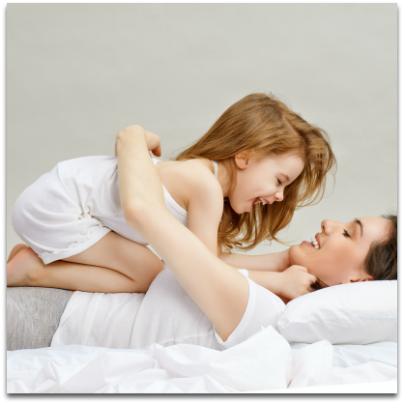 You’ve heard of mindfulness, right?
You’ve heard of mindfulness, right?
I know, silly question. You couldn’t have escaped it unless you were living in a pod in outer space — everybody and their pet seems to be talking about it these days.
But, what is mindfulness? And can you benefit from it even if you’re not quite into the whole touchy, feely, new-agey stuff?
I hear you.
I stumbled on mindfulness by chance, or fate, depending on how you look at it and what you believe. Either way it was a happy incident.
We were in Kuala Lumpur Airport waiting for our plane to arrive and decided to grab a coffee from a place across a bookstore while we waited.
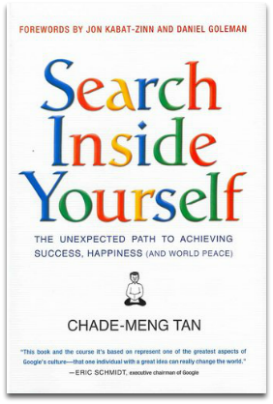 I have a weakness for airport bookstores — traveling helps rid me of my inhibitions and the curse of putting too much thought into what I read. While looking through the shelves rather aimlessly, the book Search Inside Yourself: The Unexpected Path to Achieving Success, Happiness (and World Peace)
I have a weakness for airport bookstores — traveling helps rid me of my inhibitions and the curse of putting too much thought into what I read. While looking through the shelves rather aimlessly, the book Search Inside Yourself: The Unexpected Path to Achieving Success, Happiness (and World Peace) by Chade-Meng Tan caught my eye. I bought it on an impulse for my husband.
At the time he was busy so I started reading it.
I was hooked.
Before becoming a stay at home mom, I was a software engineer and this book is perfect for those of us who are piqued by mindfulness but could do without the touchy, feely, new-agey vibe.
While reading the book I looked up the Google University session lead by Jon Kabbat-Zinn, a doctor who has been credited with bringing mindfulness to the attention of the west and creating a program which helps fight stress using mindfulness.
His definition of mindfulness is
Mindfulness means paying attention in a particular way; On purpose, in the present moment, and non-judgmentally.
It is not meditating, it is more like slowing down enough to consciously listen to your thoughts without judging them. And applying that to the way you do everything else.
It was exactly what I needed to learn. At that point in my life, I felt like stress was slowly killing me; physically, mentally and emotionally.
It has been more than a year since I discovered mindful living and while I am not always successful at implementing everything I have learned, it has helped me become a different person, parent and wife.
That’s the thing about mindfulness – it is not something you can compartmentalize in your life. It affects everything, as it should, and subtly but fundamentally changes the quality of your day to day moments.
Here are some of the basic tenets of mindful living and how it can help us –
Mindful Presence
The first thing that changes when you start practicing mindfulness is the realization of how un-present we are.
Our bodies are somewhere but our minds are doing something completely different, thinking thoughts that are elsewhere. It is not about missing on enjoying something because we are not present, it is the fact that we do not experience it fully.
If you are out with friends having coffee and thinking about bills or errands you need to run later, you are robbing yourself of being there. Instead, immerse yourself in the moment and experience it fully.
Similarly, while playing with your kids, instead of letting your mind wander, try to focus on being there with them right now. It doesn’t have to be for hours – just for a few minutes will do – and notice the difference it makes.
Mindful Listening
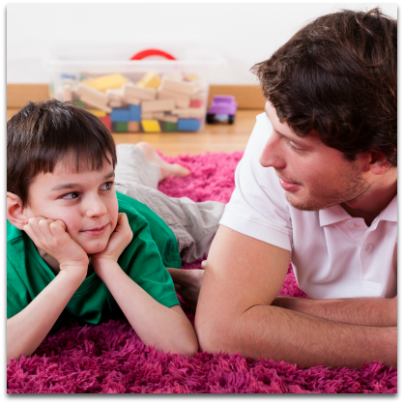 While starting to become mindful in general brought a lot of benefits to my life, listening mindfully is perhaps the one with the biggest impact on my parenting.
While starting to become mindful in general brought a lot of benefits to my life, listening mindfully is perhaps the one with the biggest impact on my parenting.
Mindful listening is particularly helpful while dealing with children, because the keyword here is non-judgmentally.
Most of the time while we listen, we are already formulating replies, comebacks, smart retorts or advice. So, in fact, we are evaluating instead of really listening.
Learning to listen in a mindful way changes the way you parent. It stops you from dismissing your childrens words flippantly and helps you connect with the underlying feelings and understand at a much deeper level what they are trying to communicate.
It has also been the best thing for my marriage, I listen to my husband without trying to judge him or what he is trying to say. Instead of jumping to conclusions or trying to fix him right away I listen. It is not always easy — a lifetime of listening while trying to analyze means I have to stop myself all the time from reverting back to my old ways — but it has really changed the quality of our conversations. We still argue like most couples, but instead of feeling resentful and angry we can move past that and deal with it.
Mindful Talking
I try really hard to express the thoughts and feelings I have and while it might seem that that is mindful talking it really wasn’t how I was doing it —I was just trying really hard to be perceived in a certain light.
Mindful speaking is slightly different, it is thinking about the effect of those words in terms of kindness, or at least that is how I like to think of it.
Instead of harsh or angry words, I try to choose words of compassion and empathy. Instead of trying to reflect a certain image for the world to see, I want to be myself. I also want my daughter to see that, not an image of her mother but her real mother, whose words are genuine and authentic.
Just by being mindful about your presence, listening and talking you can change your environment. A happier more relaxed parent helps create a happier home for children. A mindful spouse means the marriage too is happy, it is like a huge waterfall, everything eventually leads to a more content place.
Mindful Children
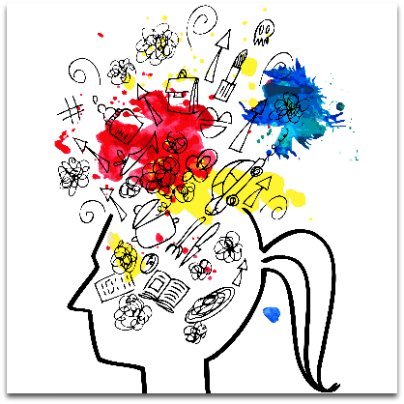 Next step – making sure our children know what mindfulness is as well.
Next step – making sure our children know what mindfulness is as well.
We can teach our children to be mindful by talking to them about it, explaining that their minds will always have lots of thoughts and that they can learn to slow those thoughts down.
My daughter is the anxious type. She will stress about little things like there is no tomorrow and she is only 6.
Whenever I catch her biting her fingernails, I ask her to slowly tell me what she is thinking about. I repeat constantly that we are not here to judge each other, that we are all susceptible to mistakes and that mistakes are not bad, just a fact of life and that we can use them to learn more about ourselves and the world around us.
Depending on how old your child is, find ways to guide them to be more mindful in their day to day activities – remember Julie’s story about Jumblee from last week?
Mindful Eating
Finally, an important but sometimes ignored aspect of mindfulness – mindful eating.
Learning to eat mindfully isn’t as much about eating better food, as it is also about enjoying what you eat. Even indulging in your favorite comfort or unhealthy food is truly enjoyed, so you need less of it since it’s more satisfying.
Sitting down for a family meal at least once a day and really being present while eating can make the whole experience much better. And you also get to teach your children a great habit for life.
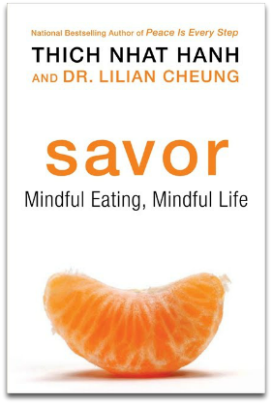 Commit to not judging what they choose to eat, just let them experience the food; the smell, taste, texture and colors. It can be hard, but even if they want to just touch and play with their food, let them. The key is to savor the food, and the whole experience of the family meal.
Commit to not judging what they choose to eat, just let them experience the food; the smell, taste, texture and colors. It can be hard, but even if they want to just touch and play with their food, let them. The key is to savor the food, and the whole experience of the family meal.
If they are old enough, let them help in the cooking process so they feel more connected to what they are putting into their bodies. Food is fuel for our bodies, and a great opportunity for practicing mindfulness.
A very good place to start for more information would be neuroscientist Sandra Aamodt’s TEDTalk and the book Savor: Mindful Eating, Mindful Life by Zen Master Thich Nhat Hanh and Harvard nutritionist Dr. Cheung.
In Conclusion…
I remember reading a quote someplace that said “Accept everything, expect nothing” — go into mindfulness with that attitude and you can’t fail.
Mindfulness is not a magic bullet and it takes time to turn it into a habit.
It is OK to stumble and you needn’t judge your faltering steps — simply celebrate how far you have come.
And the best thing? Unlike most other habits, mindfulness does not have a bar that you strive for — it’s all about the current moment.
So, right here and right now — are you being mindful? If you aren’t, simply start. This is as good a time as any other to get your mindfulness habit going.
2-Minute Action Plan for Fine Parents
Time for our contemplation questions –
- What were you thinking about while reading this article? Were you really present or was your mind jumping from one random thought to another?
- What did you have for breakfast today – did you really experience it, or did you gobble it up in the hurry to get out the door?
- When was the last time you spent time with kids when the TV was off and the phone/touch pad/laptop were put away?
- When you talk to your kids (or others, for that matter), do you really listen? Are you aware of the impact your words have on them?
- Our kids are growing up in a world that is moving a few orders of magnitude faster than the world we grew up in. Are you equipping them with tools to slow down if they want to?
Go ahead, answer as truthfully as you can. Your answers will set you free and guide you where you need to go next!
Ongoing Action Plan for Fine Parents
Start your mindfulness journey slowly and simply. Pick a single action you would like to change and focus on that for a while until you feel comfortable to move on.
For starters you could try mindful breathing — just sit in a comfortable spot for a minute and focus on your breathing. Your mind will wander, as minds like to do, but it’s OK, just focus back on your breathing. You can even think the words “exhale, inhale” if it keeps you focused. Just think about how your body is breathing all together. Start with a minute and build a little more every day if you feel ready. If it feels stressful then stop, it is not about achievement but about presence.
If sitting down to focus on breathing is not your thing, pick something else you do anyway – for instance brushing your teeth, washing dishes, eating breakfast etc. – and for just the course of that activity, intentionally focus on experiencing the activity non-judgmentally. Your mind will likely wander – just rope it in every time it does.
It’s a simple exercise, but within it, it contains the key to a whole new beautiful world.
Love your community and articles! Are there any good children’s books (fiction or non) that focus on teaching mindfulness to kids? thanks! Lisa Gantt
Love this article. Thank you!
I really like this and think it’s very important more than ever now since our entire society seems to have ADD. We’re so hooked on our smartphones that we can’t even ride a bike without texting at the same time(I kid you not. I saw a teenager riding his bike with no hands down my subdivision and you guessed it..he was TEXTING!!)
Being present in the moment helps you to appreciate life. Especially when you’re out with friends. As much as we think we know that we’ll live to see another day…the truth is, none of us know if we’ll wake up tomorrow or not. We can’t predict the future. So the only moment we have is right now. I always make it a point to be present mentally when I’m out with friends, put my phone on vibrate and I don’t respond to any texts(unless it’s urgent).
When I’m playing with my kids, I make it a point to focus on them and the activity we’re doing. But I’ll admit – the eating dinner thing – I don’t have that one down quite yet. 🙂
If my oldest is playing with her food and acting up at the table – it’s very hard for me to just sit there and let her play with it. It’s just not happening. In my opinion(and my wife’s) that is not a pleasant”family meal” experience.
I know there are ways in which I can slow down and be more present in my moments throughout the day. This was a great reminder that I should try to slow down even more than what I’m already doing. Thanks for posting!
I think the whole point is to try to be present even if you don’t feel like you are doing it perfectly. And do let the kids play with their food at home at least, they have a lifetime ahead to learn proper table manners a little fun here and there never hurt anyone.
Thanks for sharing, SimpleRyan.
To be honest here, when I read Yasmin’s post the first time, the “let them play with their food” was one of the harder ones for me to swallow. In the end though, I have to agree with her… after a long day at school being told the entire time what she can and cannot do, I think giving a little leeway to my daughter during dinner goes a long way in helping her unwind, get grounded and to a certain extent be present without having to worry about the rules. As long as the playing does not involve target practice with peas, or painting a masterpiece with sauce, I think it’s all good. It’s easier said than done though for me — I suspect I have/had borderline OCD — but definitely something worth working towards.
I have long been a fan of Jon Kabat-Zinn, having read Full Catastrophe Living years ago. It’s a different approach for me to see it applied to parenting, and especially needed as a sahm to two little boys. Thank You!
Hi Sarah, I haven’t read Full Catastrophe Living — thanks for pointing it out to me. And so glad this article gave you a new perspective on parenting to ponder on 🙂
I too haven’t read the book yet, definitely on my to-read list. Glad you found the article helpful
I love this article and I am so glad you are returning to your beginnings. It was this kind of teaching that drew me to your website as parenting resources on this topic are slim. Thanks again for sharing.
Aww Shannon, Thanks! I love feedback like this that lets me know what kind of articles to publish. Really, really appreciate it!
I hope things have fallen in place on your end with the new job and the new schedule, and things are running smoothly, giving you some time to be mindful/present with the twins 🙂
Thank you for the feedback, there are lots of great resources out there on mindful parenting, but I think basically the best thing to do is take the big concepts and find ways to apply them to your life in ways that make it easiest for you